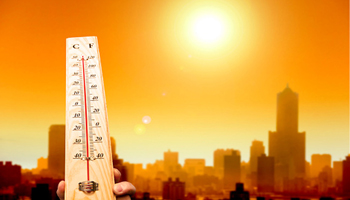Washington, Apr 28: 2017 will be among the hottest years on record, say scientists who have developed a new method for predicting global mean temperature.
Researchers at Yale University in the US found that weak El Nino activity from 1998 until 2013, rather than a pause in long-term global warming, was the root cause for slower rates of increased surface temperature.
They also found that volcanic activity played only a minor role.
"From a practical perspective, our method, when combined with El Nino prediction, allows us to predict next-year global mean temperature," said Alexey Fedorov, professor at Yale University.
"Accordingly, 2017 will remain among the hottest years of the observational record, perhaps just a notch colder than 2016 or 2015," Fedorov said.
El Nino events contribute to year-to-year variations in global mean temperature by modulating the heat that is released from tropical oceans into the atmosphere, researchers said.
El Nino warms the atmosphere, while the cold phase of the phenomenon, La Nina, cools the atmosphere.
The new model closely mirrors global mean surface temperature (GMST) changes since 1880, including the so-called global warming hiatus and the more recent temperature rise.
"Our main conclusion is that global warming never went away, as one might imply from the term 'global warming hiatus,'" Fedorov said.
"The warming can be masked by inter-annual and decadal natural climate variability, but then it comes back with a vengeance," said Fedorov.
Multiple strong El Nino events occurred in the 1980s and 1990s. This was followed by much weaker El Nino activity, which lasted until 2014.
"The recent rapid rise in global temperature mainly resulted from the prolonged 2014-2016 El Nino conditions in the tropics that reached an extreme magnitude in the winter of 2015," said Shineng Hu, first author of the study published in the journal Geophysical Research Letters.
"The corresponding heat release into the atmosphere, together with the ongoing background global warming trend, made 2014, 2015, and 2016 the three consecutive warmest years of the instrumental record so far," Hu said.





Comments
Add new comment